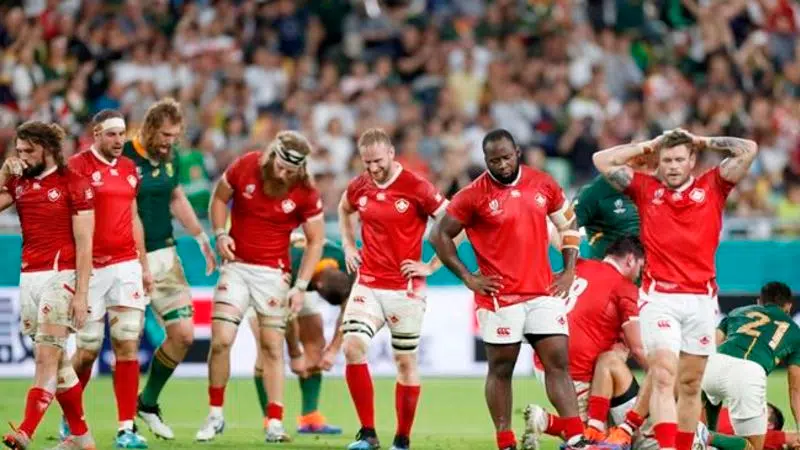
Canada, Namibia rue missed shot at rare Rugby World Cup win due to typhoon
KAMAISHI, Japan — With Typhoon Hagibis closing in, the Canadian rugby team went to bed Saturday with three possible scenarios for its final Pool B match against Namibia at the Rugby World Cup in Japan.
Go ahead as scheduled with the 12:15 p.m. start (local time) Sunday in Kamaishi, delay the kickoff or cancel the game.
It turned out to be Plan C, with Canada coach Kingsley Jones meeting with captain Tyler Ardron and team manager Alana Gattinger in his hotel room just after 6 a.m. Sunday to plan their next move in the wake of World Rugby’s decision.
Canada will leave winless for the second straight tournament, with the weather tying its hands this time.


